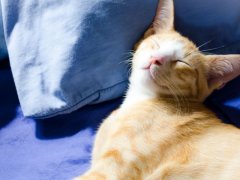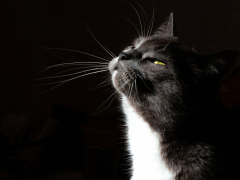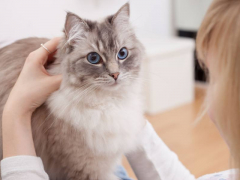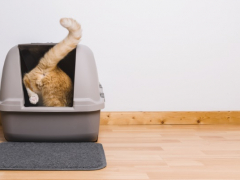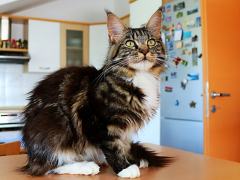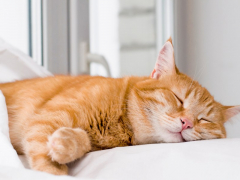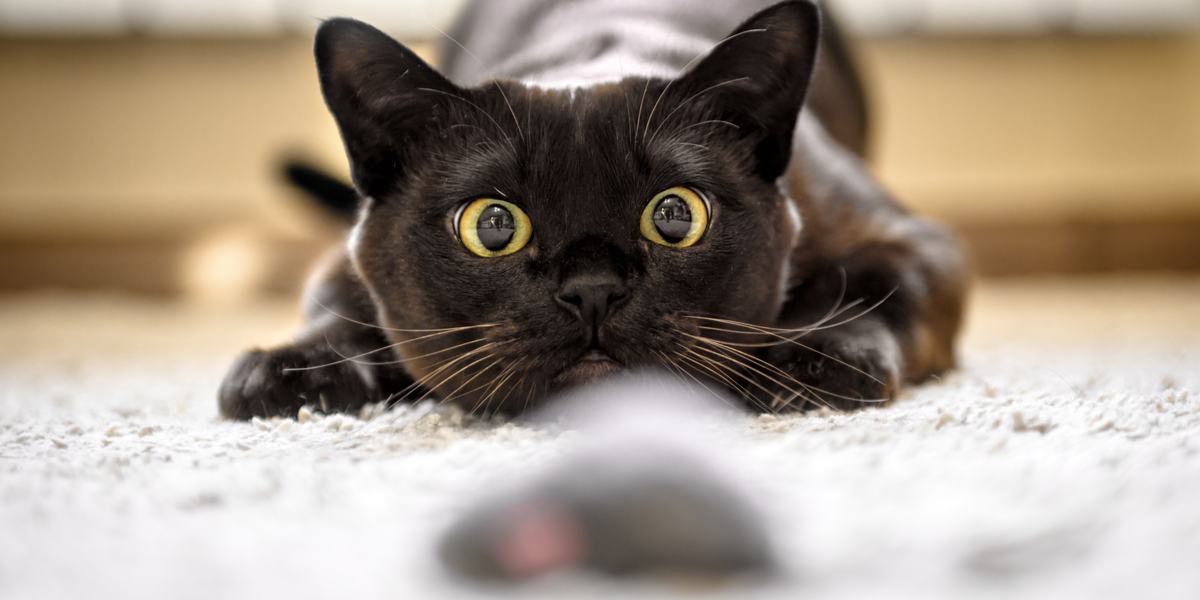
When you first bring home your new kitten, it’s hard to believe that they’re descended from an extremely successful species of predator. If left to their own devices, cats hunt many species of small mammals, lizards, and birds, killing 1.3 to 4 billion birds and 6.3 to 22.3 billion mammals each year in the United States alone.
But looking at your tiny bundle of fluff, it might seem impossible to imagine them stalking, killing, and eating prey. So, how do cats hunt? Do they prefer to hunt at certain times of the day? And what sort of prey will cats hunt?
What Do Cats Hunt?
When you open the door and let your cat out to play, you might be wondering what cats hunt. Cats are a small predator species, and the things cats will hunt is limited by their size. Cats tend to pick species that are significantly smaller than they are.
Like all predators, cats can be injured by their prey, so they tend to pick on animals that are going to put up less of a fight. And it’s important to remember that cats are solitary hunters, not pack hunters like lions. This means that they tend to hunt less dangerous or large animals than a pack might.
So, what will cats try to hunt? An adult cat will hunt small mammals like mice, shrews, and baby rabbits. More advanced hunters, often those that have spent some time living outdoors, will tackle larger rabbits, rats, and even squirrels.
These are animals that can fight back, and a kick from a rabbit or a bite from a rat or squirrel can seriously hurt an inexperienced cat, so some cats will leave them alone. Small birds are also favorite targets, much to the dismay of many cat owners and bird lovers.
Cats will also hunt small reptiles and amphibians such as frogs, toads, skinks, and geckos, if given the opportunity. Insects may also be hunted by cats.
In other words, if it’s smaller than a rabbit and moves like prey, a cat will probably have a go at hunting it.
Do Cats Hunt Rabbits?
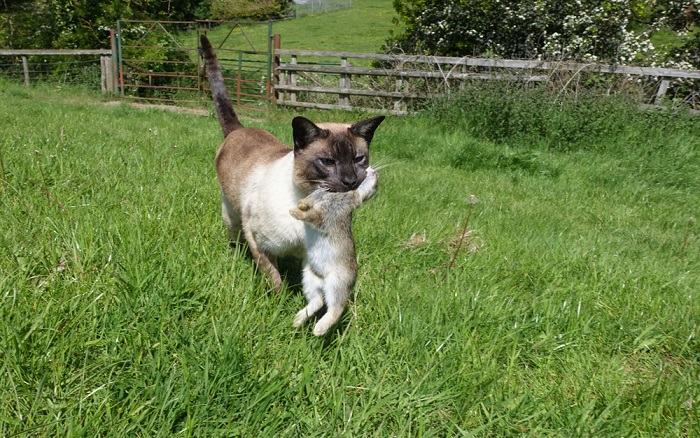
Yes, cats will hunt rabbits. Baby rabbits are less able to fight for themselves and may be easier to catch, meaning cats are more likely to catch baby rabbits, but they can and do catch adult rabbits, too.
Do Cats Hunt Squirrels?
Yes, cats hunt squirrels. However, some cats will respect the nasty bite and scratch that a squirrel can dish out and will decide not to hunt them. Others, especially those that have been taught how to kill-kick by an experienced mom when a little kitten, will happily hunt squirrels, although squirrels’ speed and agility mean they may not be caught often!
Do Cats Hunt Rats?
Yes, some cats will hunt rats. However, some cats, especially those not born to natural hunters, avoid hunting rats as they can be large and aggressive. If you want a cat to hunt rats on your property, it’s best to get a semi-feral farm cat who will have been raised and taught hunting by their mother, learning the important kill-kick that allows them to take on larger prey.
Do Cats Hunt Weasels?
Most cats will not hunt weasels. Weasels are large and aggressive animal that are predators in their own right, making them dangerous to hunt. While some cats might take on a weasel, many will not, choosing easier, less risky prey to hunt.
Methods Cats Use To Hunt
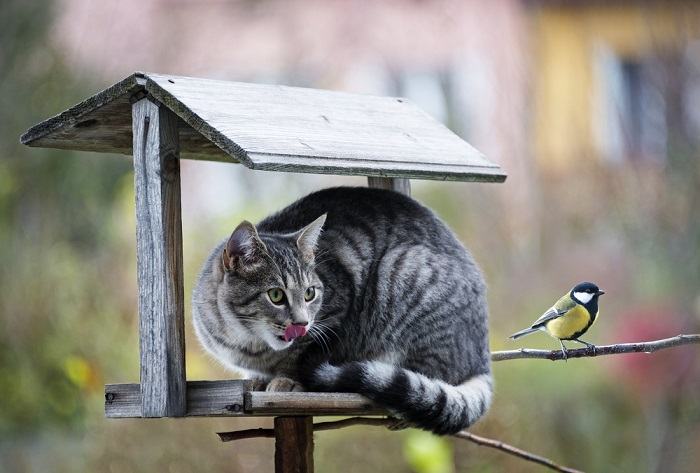
If don’t want your cat to kill wildlife around your home, keep them indoors or in an outdoor cat enclosure.
So how do cats hunt? Well, a cat starts hunting for prey by looking around to find them. They will use their sensitive ears to listen for noises of prey moving beneath leaves, through long grass, and beneath objects.
They then approach the prey using stalking: an almost-silent stealth walk that gets them close enough to pounce. If the prey is hidden, a cat will get close before crouching, ready to pounce, to wait for them to appear. They then switch to using their eyes. Cat’s eyes are highly attuned to movement and once in this position they will pounce on anything that moves into view.
When they pounce, a cat extends his claws and sinks them into their prey to capture it. They’ll then bite down, killing their prey. For larger prey, a cat may need to roll onto his back holding his prey in his mouth and kick at his victim to kill it.
Do Cats Hunt At Night?
Cats tend to be “crepuscular,” which means they are active at dawn and dusk. This is when most of their prey is most active, too. They tend not to hunt long after nightfall, instead waiting for the early hours of the morning when their prey gets moving again. This varies by area though. In countries where there are many nocturnal prey species, cats may do more night hunting.
What Age Do Cats Stop Hunting?
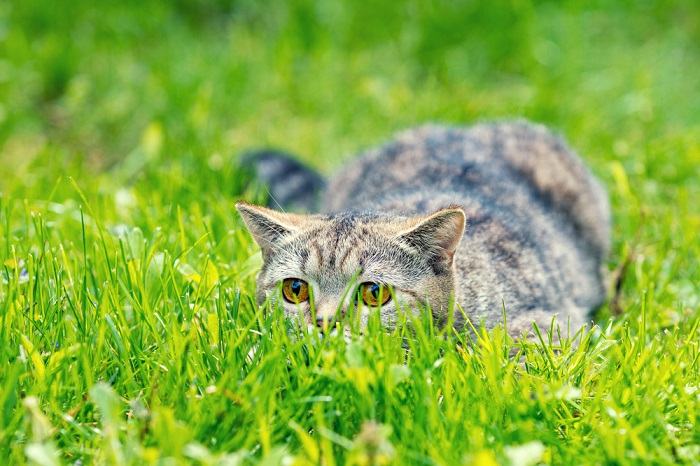
If cats enjoy hunting, they might practice this behavior for most of their lives.
There is no set age that cats stop hunting. Some cats don’t ever have much interest in hunting, while others will hunt long into their teens. It’s more likely that cats will stop hunting when they’re no longer physically fit, and you’ll likely notice a reduction in their kills over time before they eventually give up.
This is a sign of arthritis or another problem and if your previously prolific hunter stops hunting, book a visit to the vet to investigate.
Conclusion
Cats are often described as “natural born killers” due to their innate hunting instinct. A cat hunts by stalking his prey silently before pouncing, clawing, and biting. Luckily, not all cats hunt, but if yours is a prolific hunter you may want some advice on how to stop your cat killing the wildlife, as domestic cats are responsible for a large number of wildlife deaths!
Also Read: Can Cats See In The Dark?
Frequently Asked Questions
How do you know if your cat is hunting?
It can be difficult to tell if your cat is hunting when you let them out. Many cats will bring home "presents" of dead animals, but if your cat doesn’t it doesn’t mean they aren’t hunting—they might just be eating everything they catch.
You could try a GPS collar, but this will only tell you where your cat spends his time. A small collar camera would also show whether your cat is hunting, but is expensive and potentially dangerous. In other words, for some cats you’ll just never know if your cat is hunting or not.
Do cats have a high prey drive?
Most fit and healthy cats have a high prey drive and will happily "hunt" their toys and any unfortunate small animals that cross their path. However, some cats have a higher prey drive than others and will actively hunt on a daily basis!
Are all cats good hunters?
No, not all cats are good hunters. Some are too lazy, or naturally not as quiet and agile as they need to be. In contrast, some cats are super-hunters and are much more successful than average cats.
